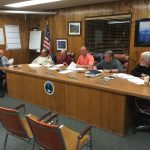During September, Gov. Jerry Brown had to decide whether to sign or veto more than a thousand bills, which the Legislature passed during its session. During the final week of September, he approved hundreds and vetoed many others.
Among the various bills that are now law is Assembly Bill 1619. This new law extends the statute of limitations for any civil action for recovery of damages suffered as a result of sexual assault.
Currently, civil action for recovery of damages as a result of domestic violence has to be initiated within three years from the date of the last act of domestic violence or within three years from the date the plaintiff discovers that an injury or illness resulted from an act of domestic violence.
AB 1619 extends the statue of limitations to 10 years if the victim was at least18 years old at the time of the assault.
Brown also opted to help his friends in the Legislature when he signed Senate Bill 1250, which now specifies that a legislator’s primary address is the one listed on their voter registration. Now, prospective legislators can maintain two residences.
This allows legislators to claim their home is within the district they represent even if they have another residence where their child is enrolled in school, their spouse lives to be closer an employer, they receive mail, or the legislator has a lease or pays utility bills or insurance.
This bill was the result of the conviction of former state Sen. Roderick Wright, who claimed an address in the district he represented while his home and family were in another district. Prosecutors successfully secured a conviction for voter fraud.
Since the law has been signed, Brown’s legal secretary, Peter A. Krause, has urged the California Supreme Court to grant clemency for Wright.
“The crimes for which Sen. Wright was convicted — vehicle theft, perjury, false declaration of candidacy, and fraudulent voting — were non-violent in nature. Moreover, Sen. Wright has devoted much of his life to public service, including serving six years in the California State Senate and six years in the California Assembly. Since his conviction, Sen. Wright has been employed as a consultant on government affairs and is an adjunct professor,” said Krause.
In case legislators wish to celebrate late, Brown did veto SB 905, which would have allowed Los Angeles, San Francisco and seven other cities to extend alcohol service at bars and restaurants from 2 a.m. to 4 a.m.
“I believe we have enough mischief from midnight to 2 without adding two more hours of mayhem,” Brown said in his veto message.
Brown did sign two bills, which the California News Publishers Association strongly endorsed. SB 1421 grants access to police officer personnel records and the investigations conducted by law enforcement agencies into their employees. The bill requires three categories of disclosure: in cases where a police officer discharges a firearm or causes a person great bodily injury, or when there has been a substantiated charge against an officer of sexual assault or a serious case of dishonesty, like perjury.
This covers a variety records besides investigative reports. Among the type of reports, which could be disclosed, are audio and video evidence, transcripts or recordings of interviews, copies of disciplinary records relating to the incident, and letters indicating final imposition of discipline or other documentation.
These records were previously inaccessible to the public.
The other CNPA bill is AB 748, which will allow access to body camera film as well as 911 calls, and videos such as surveillance footage.
The new rules require disclosure of a limited category of records, related to critical incidents where a police officer discharges a firearm or causes a person great bodily injury.
The timing requirements are a fundamental element of the measure — they require fast disclosure of body camera and other footage.
One of the many wildfire bills Brown signed was SB 465. This legislation allows local governments to expand their Property Assessed Clean Energy programs to homeowners in high fire hazard areas for fire safety improvements to their homes.
“California must do more to make our communities fire resilient in light of the growing threat of catastrophic wildfires,” the bill’s author, Sen. Hannah-Beth Jackson, D-Santa Barbara, said after Brown signed it. “… California homeowners can get help paying for repairs that will better prepare their homes for the next major fire, which could save lives and help reduce the spread of these fires.”
Wildfire resilience improvements include replacing wood or shingle roofs and wood siding, and installing dual pane windows.
Brown also maintained his position that banning smoking at state parks and beaches would not occur during his tenure. This year, the Legislature passed three bills prohibiting smoking in these state areas.
In his veto message, Brown wrote, “I have vetoed similar measures in each of the last two years. Third time is not always a charm. My opinion on the matter has not changed. We have many rules telling us what we can’t do, and these are wide open spaces.”










